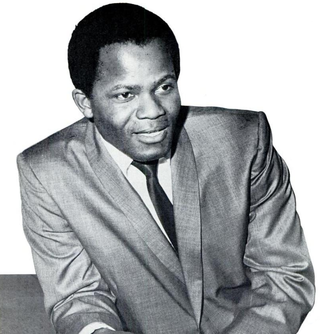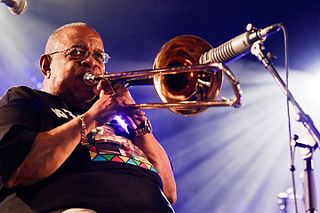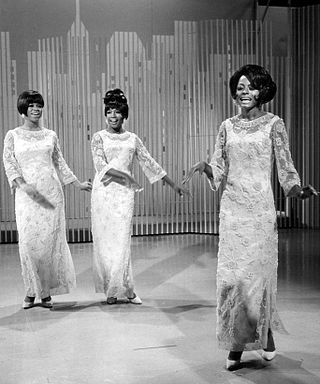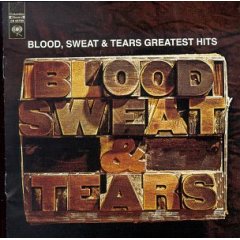
My Generation is the debut studio album by English rock band the Who, released on 3 December 1965 by Brunswick Records in the United Kingdom, and Festival Records in Australia. In the United States, it was released on 25 April 1966 by Decca Records as The Who Sings My Generation, with a different cover and a slightly altered track listing. Besides the members of the Who, being Roger Daltrey (vocals), Pete Townshend (guitar), John Entwistle (bass) and Keith Moon (drums), the album features contributions by session musician Nicky Hopkins (piano).
Clodagh Rodgers is a retired singer from Northern Ireland, best known for her hit singles including "Come Back and Shake Me", "Goodnight Midnight", and "Jack in the Box".

Yusuf Hazziez, known professionally as Joe Tex, was an American singer and musician who gained success in the 1960s and 1970s with his brand of Southern soul, which mixed the styles of funk, country, gospel, and rhythm and blues.

The Steve Miller Band is an American rock band formed in San Francisco, California in 1966. The band is led by Steve Miller on guitar and lead vocals. The group had a string of mid- to late-1970s hit singles that are staples of classic rock radio, as well as several earlier psychedelic rock albums. Miller left his first band to move to San Francisco and form the Steve Miller Blues Band. Shortly after Harvey Kornspan negotiated the band's contract with Capitol Records in 1967, the band shortened its name to the Steve Miller Band. In February 1968, the band recorded its debut album, Children of the Future. It went on to produce the albums Sailor, Brave New World, Your Saving Grace, Number 5, The Joker, Fly Like an Eagle, and Book of Dreams, among others. The band's album Greatest Hits 1974–78, released in 1978, has sold over 13 million copies. In 2016, Steve Miller was inducted as a solo artist into the Rock and Roll Hall of Fame.

The J.B.'s was James Brown's band from 1970 through the early 1980s. On records, the band was sometimes billed under alternate names such as Fred Wesley and the JBs, The James Brown Soul Train, Maceo and the Macks, A.A.B.B., Fred Wesley and the New JBs, The First Family, and The Last Word. In addition to backing Brown, the J.B.'s played behind Bobby Byrd, Lyn Collins, and other singers associated with the James Brown Revue, and performed and recorded as a self-contained group. In 2015, they were nominated for induction into the Rock and Roll Hall of Fame but failed to be inducted and can be considered for Musical Excellence in the future. They have been eligible since 1995.

American girl group The Supremes has released 29 studio albums, four live albums, two soundtrack albums, 32 compilation albums, four box sets, 66 singles and three promotional singles. The Supremes are the most successful American group of all time, and the 26th greatest artist of all time on the US Billboard charts; with 12 number-one songs on the Billboard Hot 100 and three number-one albums on the Billboard 200. The Supremes were the first artist to accumulate five consecutive number-one singles on the US Hot 100 and the first female group to top the Billboard 200 albums chart with The Supremes A' Go-Go (1966). In 2017, Billboard ranked The Supremes as the number-one girl group of all time, publishing, 'although there have been many girl group smashes in the decades since the Supremes ruled the Billboard charts, no collective has yet to challenge their, for lack of a better word, supremacy.' In 2019, the UK Official Charts Company placed 7 Supremes songs—"You Can't Hurry Love" (16), "Baby Love" (23), "Stop! In the Name of Love" (56), "Where Did Our Love Go?" (59), "You Keep Me Hangin' On" (78), "Come See About Me" (94) and "Stoned Love" (99)—on The Official Top 100 Motown songs of the Millennium chart, which ranks Motown releases by their all-time UK downloads and streams.

Greatest Hits is a compilation album by the American group Sly and the Family Stone. It was first released on November 21, 1970, by Epic Records. The album includes all of the singles from the albums Dance to the Music (1968), Life (1968), and Stand! (1969).

Herman "Junior" Parker was an American blues singer and harmonica player. He is best remembered for his voice which has been described as "honeyed" and "velvet-smooth". One music journalist noted, "For years, Junior Parker deserted down home harmonica blues for uptown blues-soul music". In 2001, he was inducted into the Blues Hall of Fame. Parker is also inducted into the Mississippi Musicians Hall of Fame.

Star Time is a four-CD box set by American musician James Brown. Released in May 1991 by Polydor Records, its contents span most of the length of his career up to the time of its release, starting in 1956 with his first hit record, "Please, Please, Please", and ending with "Unity", his 1984 collaboration with Afrika Bambaataa. Writing in 2007, Robert Christgau described it as "the finest box set ever released... as essential a package as the biz has ever hawked, not just because it's James Brown, but because compilers Cliff White and Harry Weinger invested so much care and knowledge in it." Its title comes from the question Brown's announcer would ask concert audiences, as heard on the album Live at the Apollo: "Are you ready for star time?"
Track Record was founded in 1966 in London by Kit Lambert and Chris Stamp, then managers of the rock group The Who. It was one of the first British-owned independent record labels in the United Kingdom. The most successful artists whose work appeared on the Track label were The Jimi Hendrix Experience, The Who, The Crazy World of Arthur Brown, Thunderclap Newman and Golden Earring. The label ceased operations in 1978 but was revived in 1999.

This is a discography chronicling the musical career of James Brown. Brown joined Bobby Byrd's vocal group The Flames in 1953, first as a drummer, and then as leading front man. Later becoming The Famous Flames, they signed with Federal Records in 1956 and recorded their first hit single, "Please, Please, Please", which sold over a million copies.

Phillip Upchurch is an American jazz and blues guitarist and bassist.

Greatest Hits is a compilation album by the band Blood, Sweat & Tears, initially released in February 1972.

Time Peace: The Rascals' Greatest Hits is a greatest hits album from the Rascals, released on June 24, 1968. It reached number one on the Billboard Pop Albums chart by September 1968. It also topped the Cash Box albums chart with a run in the Top 10 for 20 consecutive weeks

This article contains information about albums and singles released by the American musical duo Ike & Tina Turner.

The Drifters' Golden Hits is a 1968 compilation album by American doo wop/R&B vocal group The Drifters. The collection of the bands' later hits charted at #22 on Billboard's "Black Albums" chart and at #122 on the "Pop Albums" chart.
Horst Jankowski was a classically trained German pianist, most famous for his internationally successful easy listening music.

The discography of American singer-songwriter Bobby Vinton consists of 38 studio albums, 67 compilation albums, two video albums, three live albums, and 88 singles.
The Casuals were a British pop group from Lincoln, Lincolnshire, England. They are best known for their 1968 No. 2 UK hit song, "Jesamine".

Bassey – The EMI/UA Years 1959–1979 is a 5-CD boxset compilation from Shirley Bassey issued in 1994, this set features 94 studio recordings on four CDs, recorded for EMI/United Artists between 1959 and 1979. Disc five features a previously unreleased live recording from Carnegie Hall. The boxset was reissued by EMI in 2010 in a standard jewel case set.
















